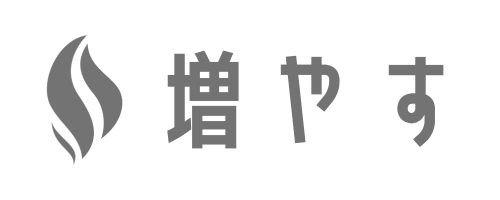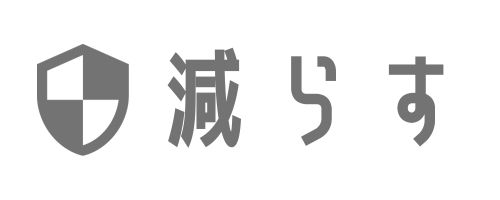
本のタイトル:Atomic Habits
著者の紹介:
James Clear
作家、講演家。
高校時代に野球のバットが顔面にヒットし、目が飛び出してしまうほどの大けがを負いヘリで病院に搬送後、植物状態に陥り、死ぬ間際の経験をする。
その7年後、Denison大学のトップアスリートに選ばれ、全米選抜チームに選ばれるほどに回復。
卒業後には、大学のレコードブックに8つのカテゴリーでレコードされたり、大学のHighest Academic Honorであるthe President medalを獲得。
彼自身、上記の内容は歴史に残るような実績ではないが、植物状態から上記のような実績を達成することができた理由として、Atomic Habits (小さな習慣の積み重ね)であると本著で述べている。
Takeaways:
1. Habits are the compound interest of self-improvement.
This can be a difficult concept to appreciate in daily life. We often dismiss small changes because they don’t seem to matter very much in the moment. If you save a little money, you’re still not a millionaire. If you go to the gym three days in a row, you’re still out of shape.
Unfortunately, the slow pace of transformation also makes it easy to let a bad habit slide. If you eat unhealthy meal today, the scale doesn’t move much. If you work late tonight and ignore your family, they will forgive you. A single decision is easy to dismiss.
But when we repeat 1% errors, day after day, by replicating poor decisions, duplicating tiny mistakes, our small choices compound into toxic result.
習慣は小さすぎて認識できない。だからその瞬間は重要じゃないように感じる。
変化がないように感じるから、続けられずに間違った選択(disobedient to the truth)を選ぶ。
ただ、間違った小さな選択をdays, weeks, months続けることでcompoundの結果を生む。
2. You get what you repeat.
Your outcomes are a lagging measure of your habits. Your net worth is a lagging measure of your financial habits. Your weight is a lagging measure of your eating habits. Your knowledge is a lagging measure of your leaning habits. You get what you repeat.
「現在」は「過去の習慣」が積みあがったもの。現資産は過去のfinancial habitsが積みあがったもの。体重は過去の食習慣が積みあがったもの。知識は過去の勉強習慣が積みあがったもの。You get what you repeat.
3. What progress is really like.
Imagine that you have an ice cube sitting on the table in front of you. The room is cold, and you can see your breath. It is currently -5 degrees. Ever so slowly, the room begins to heat up. -5, -4, -3, -2, -1… still, nothing has happened. Then 0 degrees. The ice begins to melt.
A one-degree shift, seemingly no difference from temperature increase before it, has unlocked a huge change.
Similarly, habits often appear to make no difference until you cross a critical threshold and unlock a new level of performance. You expect to make progress in a linear fashion and it’s frustrating how ineffective can seem during the first days, weeks, and even months. The most powerful outcomes are delayed. This is one of the core reasons why it is so hard to build habits that last.
You think, “I’ve been running every day for a month, so why can’t I see any change in my body?” Once this kind of thinking takes over, it’s easy to let good habits fall by the wayside. But in order to make a meaningful difference, habits need to persist long enough to break through this plateau. What I call the Plateau of Latent Potential.
氷は0度になると溶け始めるが、0度よりも前に-5,-4,-3,-2,-1と温度が上がっていても溶けない。
これはすべての物事でも同じ。物事が変化するには、ある一定の値を超えなければならない。
ほとんどの人が継続できないのは、-5から-1までしか行動せず、変化がないように見えるからやめてしまう。
しかし-5から-1は氷と同じく変化がないように見えるが、確実に変化が起こる一定の値まで近づいている。
この変化が起こる値のことをThe Plateau of Latent Potentialという。
4. Winner and losers have the same goals.
Every Olympian wants to win a gold medal. Every candidate wants to get the job. And if successful and unsuccessful people share the same goals, then goal cannot be what differentiates the winners from the losers. The goal had always been there. It was only when they implemented a system of continuous small improvements that they achieved a different outcome. (British Cycling story)
全てオリンピック選手は金メダルが欲しい。全ての応募者はジョブが欲しい。
勝者と敗者が同じ目標を持っているのであれば、「目標そのもの」が勝者と敗者を分けているわけではない。
勝者と敗者を分けるのは、小さなimprovementを継続して実施できるシステムを導入したかどうか。
5. Goals restrict your happiness.
“Once I reach my goal, then I’ll be happy.” The problem with goal-first mentality is that you’re continually putting happiness off until the next milestone. Eather, you achieve your goal and are successful or you fail, and you are a disappointment.
System-first mentality provides the antidote. When you fall in love with the process rather than the product, you don’t have to wait to give yourself permission to be happy. You can be satisfied anytime your system is running.
「ゴールに到達したら、俺はハッピーだ」というgoal-first mentalityは、ゴールが達成するまで幸せになれない。
またゴールが達成できない場合は不幸せという事。
System-first mentalityの場合、ゴールに達成するための「習慣」を形成し、それが正しく機能している事が幸せ。
だから習慣がrunningしている限り、幸せであると認識していい。
6. The system of Atomic habits.
If you’re having trouble changing your habits, the problem isn’t you. The problem is your system. Bad habits repeat themselves again and again not because you don’t want to change, but because you have the wrong system for change.
もし習慣を変えることが難しいなら、問題は自分じゃない。問題は「システム」にある。
悪い習慣が何度も繰り返すのは、変えたくないと思っているからではなく、「間違ったシステム」がrunningしてるから。
7. Outcome-Based Habits & Identity-Based Habits
Many people begin the process of changing their habits by focusing on what they want to achieve. This leads us to outcome-based habits. The alternative is to build identity-based habits. What this approach, we start by focusing on who we wish to become.
Imagine two people resisting a cigarette. When offered a smoke, the first says, “No, thanks. I’m trying to quit.” It sounds like a reasonable response, but this person still believes they are a smoker who is trying to be something else. They are hoping their behavior will change while carrying around the same belief.
The second person declines by saying, “No thanks. I’m not a smoker.” It’s small difference, but this statement signals a shift in identity. Smoking was part of their former life, not their current one. They no longer identify as someone who smokes.
ほとんどの人が「何をしたいか」にfocusして習慣を変えようとする。(Outcome-based habits)
正しくは「どうなりたいか」にfocusする必要がある。(Identity-based habits)
例) 「タバコ吸いますか?」に対する返答
Outcome-based: いいえ、今やめようとしています。(=何をしたいか) → 禁煙しようとしている「喫煙者」と認識
Identity-based: いいえ、私は喫煙者じゃありません。(=どうなりたいか) → 「禁煙者」と認識
8. The ultimate form of intrinsic motivation is when a habit becomes part of your identity.
The more pride you have in a particular aspect of your identity, the more motivated you will be to maintain the habits associated with it.
True behavior change is identity change. You might start a habit because of motivation, but the only reason you’ll stick with one is that it becomes part of your identity.
Your behaviors are usually reflection of your identity. Research has shown that once a person believes in a particular aspect of their identity, they are more likely to act in alignment with that belief. For example, people who identified as “being a voter” were more likely to vote than those who simply claimed “voting” was an action they wanted to perform.
After all, when your behavior and your identity are fully aligned, you are no longer pursuing behavior change. You are simply acting like the type of person you already believe yourself to be.
自分のidentityにプライドがあればあるほど、そのidentityにマッチするような習慣を維持しようとする。
行動の変化→習慣の変化→Identityの変化。
研究の結果、一度自分のidentityを認識したら、それに合わせようと行動する傾向がある事が分かっている。
自分を「Voter」だと認識している人は、「Votingするべき」と考えている人よりも、Vototingする傾向がある。
9. Identity change can be a powerful force for self-improvement. When working against you, though, identity change can be a curse.
I’m terrible with direction. I’m not a morning person. I’m not good with technology. I’m horrible at math. And a thousand other variations.
When you have repeated a story to yourself for years, it is easy to slide into these mental grooves and accept them as a fact. In time, you begin to resist certain actions because “That’s not who I am.”
The real reason habits matter is not because they can get you better result, but because they can change your beliefs about yourself.
私は方向音痴だ。私は朝型人間じゃない。私はテクノロジーが苦手。私は数学が苦手。などなど
一度自分の思考をリピートし始めると、簡単にそれを事実と思い込む。その結果「私っぽくないから」という理由で断る。
「習慣」がなぜ大事なのかというと、いい結果を生むからではなく、習慣がその人の「identity」を形成するから。
10. The two-step to changing your identity.
You are not born with preset beliefs. Every belief, including those about yourself, is learned and conditioned through experience. More precisely, your habits are how you embody your identity. The more you repeat a behavior, the more you reinforce the identity associated with that behavior.
Whatever your identity is right now, you only believe it because you have proof of it. If you go to church every Sunday for twenty years, you have evidence that you are religious. The more evidence you have for a belief, the more strongly you will believe it.
The process of building habits is actually the process of becoming yourself.
This is a gradual evolution. We do not change by snapping our fingers and deciding to be someone entirely new. We change it bit by bit, day by day, habit by habit. We are continually undergoing microevolutions of the self.
In order to change your identity, it is a simple two-step process.
1. Decide the type of person you want to be.
2. Prove it to yourself with small wins.
人は現時点で持っているbeliefを生まれながらに持っているわけではない。学習・経験を繰り返して身に付ける。
もっと正しく言えば、「習慣」が「identity」を形成する。
現時点の「identity」は、今まで積み上げてきた「実績」があるから信じてしまう。
例えば、毎週日曜に教会に行くことを20年続けた人がいれば、自分のことをreligiousだと信られる実績がある。
強い「実績」があればあるほど、それを信じやすくなる。(←当たり前)
「習慣」を形成するプロセスは、つまり「自分自身」を形成するプロセスであるといえる。
人は一瞬で全く新しい人になれるわけではない。人は少しずつ、一日一日、習慣を積み上げることで変わる。
我々は継続的に「Micro-Evolution」をし続けていることに気付け。
11. Habit do not restrict freedom. They create it.
In fact, the people who don’t have their habits handled are often the ones with least amount of freedom. Without good financial habits, you will always be struggling for next dollar. Without good health habits, you will always seem to be short on energy. If you’re always being forced to make decisions about simple tasks- when should I work out, where do I go to write, when do I pay the bills- then you have less time for freedom.
Conversely, when you have your habits dialed in and the basics of life are handled and done, your mind is free to focus on new challenges and master the next set of problems. Building habits in the present allows you to do more of what you want in the future.
事実、「習慣がない人」は「自由の少ない人」と言える。なぜか。
Financial habitsの無い人は、お金に困る。
Health habitsの無い人は、いつも元気がなく感じる。
もしも毎回選択をしなければならない場合(いつ運動するのか、どこで仕事をするのか、いつ支払うのかetc)、つまりそれは、選択することにマインドが囚われてしまい、「自由が無い」といえる。
反対に、「習慣のある人」は、日々の生活やタスクを管理できるから、気持ちが楽であり、新しいチャレンジに集中することができ、問題が発生しても対処できる。
「習慣を作る事」は、未来の余裕を作り自由になる事につながる。
12. The process of building habits: cue, craving, response, and reward.
The cue is about noticing the reward. The craving is about wanting the reward. The response is about obtaining the reward. Finally, the response delivers a reward. We chase the rewards because they serve two purposes: (1) they satisfy us and (2) they teach us. P49
The 4 laws of behavior change are simple set of rules we can use to build better habits. They are (1) make it obvious, (2) make it attractive, (3) make it easy, (4) make it satisfy.
Process of habits How to create a good habit How to break a bad habit
Cue Make it Obvious Make it Invisible
Craving Make it attractive Make it unattractive
Response Make it easy Make it difficult
Reward Make it satisfying Make it unsatisfying
「習慣」は4つのプロセスで構成される。
Cue(認識する), Craving(欲する), Response(行動する), Reward(得る).
なぜ人がRewardを求めるのかというと、①満足できるから、②「満足できる」と学べるから
そして「習慣の形成」には、各プロセスに対して、上の表の対応を行う。
13. The 1st law: Make it Obvious. (Create a Good habit)
People who make a specific plan for when and where perform a new habit are more likely to follow through. Many people never say when and where these habits are going to happen. We leave it up to chance and hope that we will “just remember to do it” or feel motivated at the right time.
✕:I’m going to eat healthier.
✕:I’m going to write more.
The simple way to apply this strategy to your habits is to fill out this sentence:
I will [BEHAVIOR] at [TIME] in [LOCATION].
Meditation:I will meditate for one minute at 7 a.m. in my kitchen.
Exercise:I will exercise for one hour at 5 p.m. in my local gym.
When it comes to building new habits, you can use the connectedness of behavior to your advantage. One of the best ways to build a new habit is to identify a current habit you already do each day and then stack your new behavior on top. This is Called habit stacking.
The habit stacking formula is:
After [CURRENT HABIT], I will [NEW HABIT].
Meditation:After I pour my cup of coffee each morning, I will meditate for one minute.
Exercise:After I take off my work shoes, I will change into my workout clothes.
The key is to tie your desired behavior into something you already do each day. This allows you to take advantage of the natural momentum that comes from one behavior leading into the next. (Ex: After I pour my coffee, I will meditate for 1min. After I meditate for 1min, I will write my to-do list for the day.)
より詳細な計画を立てる人は、実行する確率が高い。
ほとんどの人は「when」や「where」を曖昧にする。その結果、その習慣のトリガーが偶然に発生するまで放置し、「モチベーションが上がったらやる」などと言う。
必ず方程式に合わせて「when」と「where」を決める。I will [habit] at [when] in [where].
また現在既にある習慣と組み合わせるHabit Stackingという手法も有効。
After [current habit], I will [new habit].
ポイントは、身に付けたい習慣を現在既に毎日している習慣と組み合わせること。毎日の習慣の勢いを使って、新しい習慣に流れるようにする。
14. The 1st law: Make it Invisible. (Break a bad habit)
One of the most practical ways to eliminate a bad habit is to reduce exposure to the cue that causes it.
If you can’t seem to get any work done, leave your phone in another room for a few hours.
If you’re continually feeling like you’re not enough, stop following social media accounts that trigger jealousy and envy.
If you’re wasting too much time watching television, move the TV out of the bedroom.
Rather than make it obvious, you can make it invisible.
Self-control is a short-term strategy, not long-term one. You many be able to resist temptation once or twice, but it’s unlikely you can muster the willpower to override your desires every time. Instead of summoning a new dose of willpower whenever you want to do the right thing, your energy would be better spent optimizing your environment.
「悪い習慣」を断ち切るためには、Cue(認識する)を消しさればいい。(例:スマホ、SNS)
セルフコントロールは「short-term」であり、「long-term」ではない。
最初はセルフコントロールで誘惑に勝てるかもしれないが、そのエネルギーは長続きしない。
エネルギーを使う必要がないように、環境を変えて、そもそもCueを認識できないようにする。これは一時的な努力で済む。
15. The 2nd law: Make it Attractive. (Create a Good habit)
Habits are a dopamine-driven feedback loop. Every behavior that is highly habit-forming― taking drugs, eating junk food, playing video games, browsing social media―is associated with higher levels of dopamine.
When it comes to habits, the key takeaway is this: dopamine is released not only when you experience pleasure, but also when you anticipate it. Gambling addicts have a dopamine spike right before they place a bet, not after they win. Cocaine addicts get a surge of dopamine when they see the powder, not after they take it. Whenever you predict that an opportunity will be rewarding, your levels of dopamine spike in anticipation. And whenever dopamine rises, so does your motivation to act.
Interestingly, the reward system that is activated in the brain when you receive a reward is the same system that is activated when you anticipate a reward. This is one reason the anticipation of an experience can often feel better than the attainment of it. As a adult, daydreaming about upcoming vacation can be more enjoyable than actually being on vacation. (P.107)
Temptation building is one way to make your habits more attractive. The strategy is to pair an action you want to do with an action you need to do.
The habit stacking + temptation building formula is:
1. After [CURRENT HABIT], I will [HABIT I NEED].
2. After [HABIT I NEED], I will [HABIT I WANT].
EX: After I get back from my lunch break (CURRENT HABIT), I will call three potential clients (need). After I call three potential clients, I will watch YouTube (want).
Doing the thing you need to do means you get to do the thing you want to do.
Also, you can make hard habit more attractive if you can learn to associate them with a positive experience. Sometime, all you need is a slight mind-set shift.
For instance, we often talk about everything we have to do a given day. You have to wake up early for work. You have to make another sales call for your business. You have to cook dinner for your family.
Now, imagine changing just one word: you don’t “have” to. You “get” to.
You get to wake up early for work. You get to make another sales call for your business. You get to cook dinner for your family.
By simply changing one word, you shift the way you view each event. You transition from seeing these behaviors as burdens and turn them into opportunities.
The key point is that both versions of reality are true. You have to do those things, and you also get to do them.
ドーパミンができることで習慣化する。(良い事も悪いことも) 例)ジャンクフード、SNS、ポルノ
実は、ドーパミンが一番出るのは、実際に行動した時ではなく、それについて考えたとき(anticipate)
ギャンブル依存症はお金をベットする時に一番ドーパミンが出るし、コカイン中毒は粉を見れば一番ドーパミンが出る。
報酬を考えればドーパミンが出るし、ドーパミンが出れば行動のモチベーションが現れる。
身近な例でいえば、旅行について計画を立てているときが、実際に旅行中の時よりもドーパミンが出ている。
Temptation bundlingという方法がhabitをattractiveにさせる。(前述のHabit stackingと組み合わせる)
また身に付けたい習慣をよりattractiveにするには、マインドを変えてみるのも有効。
「しないといけない(have to)」から、「することができる(got to)」に言葉を変えてみる。(事実やることは変わらない)
16. The 2nd law: Make it unattractive. (Break a bad habit) ※完璧に理解できていない
・ You think you are quitting something, but you’re not quitting anything because [BAD HABIT] do nothing for you.
・ You think [BAD HABIT] is something you need to do to be [YOUR ASSUMPTION], but it’s not. You can be [YOUR ASSUMPTION] without [BAD HABIT] at all.
・ You think [BAD HABIT] is about [YOUR ASSUMPTION], but it’s not. [BAD HABIT] does not [YOUR ASSUMPTION], it destroys you.
EX)
・ You think you are quitting something, but you’re not quitting anything because [cigarettes] do nothing for you.
・ You think [smoking] is something you need to do to be [social], but it’s not. You can be [social] without [smoking] at all.
・ You think [smoking] is about [relieving stress], but it’s not. [Smoking] does not [relieve your nerves], it destroys you.
Over and over, repeating these phrases.
You are losing nothing, and you are making marvelous positive gains not only in health, energy, and money but also in confidence, self-respect, freedom and most important of all, in the length and quality of your future.
Every behavior has a surface level craving and a deeper, underlying motive.
“I want eat a hamburger.”
Buy why? Probably the true motive is obtaining food because you are hungry.
A craving is just a specific manifestation of a deeper underlying motive. Your brain did not evolve with a desire to smoke cigarettes or to check Instagram or to play video game. At a deep level, you simply want to reduce uncertainty and relieve anxiety to win social acceptance and approval, or to achieve status.
Look at the example of underlying motive of human nature below.
・ Using Tinder = Find love and reproduce
・ Browsing Facebook = Connect and bond with others
・ Posting on Instagram = Win social acceptance and approval
・ Searching on Google = Reduce uncertainty
・ Playing video game = Achieve status and prestige
「悪い習慣」をunattractiveにするには、その行為の本当の欲求を理解して考えを変えてみる。
全ての習慣には表面的な「craving」と深い「motive」がある。
そして、cravingはmotiveが具現化したものに過ぎない。
脳は表面的なcravingを求めているのではなく、深いmotiveを求めている。(上記リスト)
例)タバコをやめたいなら
・あなたはタバコをやめようとしているわけではない。なぜならタバコはあなたとって何でもないから。
・タバコを吸うことがsocialでいるために必要と思っているかもしれないけど、タバコ無しでもsocialやん。
・タバコがストレスを消すと思っているかもしれないけど、タバコはストレスは消さない。むしろ神経を壊してる。
なるべく習慣そのもののmotiveを深堀し、その習慣がunattractiveであることを正しく認識する必要がある。
17. The 3rd law: Make it easy. (Create a Good habit)
“The best is the enemy of the good.” (Story of University Florida, Photography class)
Energy is precious, and the brain is wired to conserve it whenever possible. It is human nature to follow the Law of Least Effort, which states that when deciding between two similar options, people will naturally gravitate toward the option that require the least amount of work.
・ Want to draw more? Put your pens, notebooks and drawing tools on top of your desk, within easy reach.
・ Want to exercise? Set out your workout clothes, shoes, gym bag, and water bottle ahead of time.
・ Want to improve your diet? Chop up a ton of fruits and vegetables on weekends and pack them in containers, so you have easy access to healthy, ready-to-eat options during the week.
The greater the friction, the less likely the habit.
Two-minutes rule: when you start a new habit, it should take less than two minutes to do.
Start by mastering the first two minutes of the smallest version of the behavior. Them advance to an intermediate step and repeat the process. Eventually, you’ll end up with the habit you had originally hoped to build. (P166)
Onetime Choices: single actions that automate your future habits and deliver increasing returns over time.
EX) Buying a better mattress, enrolling in an automatic savings plan.
Using technology to automate your habits is the most reliable and effective way.
「完璧」を求めれば、「いい結果」は得られない
脳はエネルギーをなるべく消費しないように行動する。(生きるためにエネルギーは重要だからなるべく省エネ)
なので、人は通常なるべくエネルギーを使わない選択に引き寄せられる。
反対にFrictionが多ければ、習慣にはなりづらい。
Two-minutes rule:新しい習慣を始めるなら、2分で終わるようにする。そこから少しずつステップを踏んで本来のhabitを構築する。
Onetime choices: 一度の行動で、後々の行動が自動化されるような選択をする。(良い買い物やテクノロジー)
18. The 3rd law: Make it difficult. (Break a bad habit)
Sometime success is less about making good habits easy and more about making bad habit hard. This is an inversion of the 3rd Law of Behavior Change.
A commitment device is a choice you make in present that controls your actions in the future. It is the way to lock in future behavior, bind you to good habits, and restrict you from bad ones.
EX)
Overeating → purchasing food in individual package than in bulk size
Subscription→ canceling the subscription
Social media → deleting app, changing password, using time limit for the app
成功とは時にいい習慣を作るよりも、悪い習慣を絶つことの場合がある。
Commitment deviceという方法で、悪い習慣を実行しにくくすることが有効。
例として、物理的に触れさせないなど。
19. The 4th law: Make it satisfying. (Create a Good habit)
We’re more likely to repeat something that is satisfying. For example, toothpaste flavors don’t improve the effectiveness of toothpaste – but they create a feeling of a “clean mouth”, which makes the process of brushing your teeth more enjoyable. It was after manufacturers added flavors like spearmint and cinnamon that they found great success.
But we are not looking for any satisfaction – we’re looking for immediate satisfaction. For the most part of human evolution, people lived in an immediate-return environment. Their actions had immediate results: you avoid a predator, you survive. It was only 500 years ago when our society started shifting to a delay-return environment (you work the whole month to get a paycheck.) The problem is, our brain didn’t evolve to live in this environment. It wants immediate rewards.
Reinforcement means using immediate rewards – in other words, reward yourself every time you try to stick to a new habit.
Use a Habit Tracker
One of the most satisfying feelings is the feeling of making progress.
Habit Trackers and other visual forms of measurement can make your habits satisfying by providing clear evidence of your progress.
Never Miss Twice
Don’t break the chain. Try to keep your habit streak alive. If you miss one day, try to get back on track as quickly as possible. The first mistake is never the one that ruins you. Missing once is accident. Missing twice is the start of a new habit.
人はより満足度の高い行為を繰り返す傾向がある。
例えば、歯磨き粉はミント味でフレッシュになる感じがするから、歯磨きをしたくなる。
また、満足度の種類としても、「瞬間的な満足」を求める傾向がある。
人間の脳は、遅れてくる満足よりも、瞬間的な満足を求めるように進化している。
なるべく瞬間的な満足を得る方法として、ハビットトラッカーを使い、チェックをするという満足感を得る方法がある
20. Advance tactics
The Goldilocks Rule: Peak motivation occurs when facing a challenge of just manageable difficulty.
What’s the difference between the best athlete and everyone else? What do the really successful people do that most don’t?
Really successful people feel the same lack of motivation as everyone else. The difference is that they still find a way to show up despite the feeling of boredom.
The more you practice something, the more boring and routine it becomes.
The greatest threat to success is not failure but boredom. We get bored with habits because they stop delighting us.
I can guarantee that if you manage to start a habit and keep sticking to it, there will be days when you feel like quitting. But stepping up when it’s annoying or painful or draining to do so, that’s what makes the difference between a professional and an amateur.
Professionals stick to the schedule; amateurs let life get in the way.
The Goldilocks Rule: 最大のモチベーションは、ちょうどいい難易度の挑戦の時に発生する。簡単すぎても、難しすぎてもいけない。ちょうどいいチャレンジがドーパミンを最大化させる。
プロと素人の違いは何か?
プロも素人と同じようにモチベーションがない時が当たり前にある。
しかしプロと素人の違いは、モチベーションが無くても、「実行する」こと。
実行すればするほど、習慣はつまらなくなる。最大の敵は失敗ではなく、「つまらなさ」である。
もしこれから習慣を継続しようとする場合、確実に保証できることは、その習慣は必ずつまらなくなり、辞めたくなる。
もしそこでやめたら、それがプロと素人との違い。
プロは計画に従い、素人はその場の流れに任せる。




